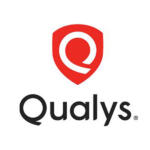Navigating the complexities of PCI compliance doesn’t have to be overwhelming. At CIRRIUSbusiness, we specialize in simplifying the process, so your business stays secure and your customers remain protected. Discover how our tailored PCI compliance solutions can safeguard your transactions and elevate your reputation.
PCI Compliance Solutions
Stay PCI-compliant, protect your customers, and grow confidently with CIRRIUSbusiness.
Why PCI Compliance Matters
Your business handles sensitive customer payment data every day. Without robust security measures, you risk financial penalties, legal repercussions, and losing customer trust. PCI compliance is not just a regulatory checkbox—it’s the foundation of secure and seamless transactions that build long-term credibility.
Key Benefits of PCI Compliance with CIRRIUSbusiness
Enhanced Data Security
Our PCI compliance services ensure your customers’ sensitive payment data is protected with industry-leading encryption and security measures.
Simplified Compliance Processes
CIRRIUSbusiness streamlines PCI compliance with tailored solutions, making audits and certifications faster and less stressful.
Reduced Risk of Data Breaches
By addressing vulnerabilities, our strategies minimize the likelihood of costly and damaging data breaches.
Improved Customer Trust
Demonstrating PCI compliance boosts customer confidence, fostering trust in your brand’s commitment to security.
Cost Savings Through Efficiency
Our expert solutions reduce unnecessary compliance expenses and operational inefficiencies, saving you money.
Proactive Threat Monitoring
Our expert solutions reduce unnecessary compliance expenses and operational inefficiencies, saving you money.
Support for All Business Sizes
From small businesses to large enterprises, our flexible compliance solutions are scalable to fit your unique needs.
Expert Guidance & Training
CIRRIUSbusiness provides staff training and ongoing support to ensure your team understands PCI compliance and best practices.
Seamless Integration with Your Systems
We implement PCI compliance measures that integrate smoothly with your existing payment systems, minimizing disruptions.
Secure transactions and seamless payment technology working hand-in-hand to simplify compliance and enhance customer trust.
Our PCI Compliance Solutions
At CIRRIUSbusiness, we offer comprehensive PCI compliance solutions tailored to your unique business needs. Our experts specialize in implementing and configuring secure payment gateways, such as Stripe, CyberSource, and Clover PCI, to ensure seamless and PCI-compliant payment processing. This not only safeguards sensitive payment data but also enhances the customer checkout experience, building trust and confidence in your brand.
Data protection is at the heart of our approach. We deploy advanced encryption and tokenization technologies to protect cardholder information both during transmission and while at rest. By replacing sensitive data with secure tokens, we minimize the risk of data breaches, ensuring compliance with PCI DSS standards and safeguarding your business from potential vulnerabilities.
For businesses aiming to bridge compliance gaps, our team conducts detailed audits to identify vulnerabilities and provides actionable strategies to meet industry requirements. Our compliance gap analyses are designed to help you understand your current standing, prioritize improvements, and achieve certification with confidence.
Finally, we believe that knowledge is power. Our training programs empower your team with the knowledge and tools to maintain PCI compliance, ensuring they are well-versed in best practices for safe payment handling. From simplifying complex requirements to promoting secure behaviors, we help make compliance an integral part of your operations.
How We Stand Out
At CIRRIUSbusiness, we partner with trusted brands to deliver industry-leading solutions:
Our expertise ensures that your business not only meets compliance standards but thrives in a competitive digital environment.




Case Studies: PCI Compliance in Action
Michigan-Based International Manufacturer: PCI Compliance Streamlined
A Michigan-based international manufacturer engaged CIRRIUSbusiness to enhance their payment processing systems and address PCI compliance challenges. A thorough analysis of their workflows revealed a significant inefficiency: customer service representatives were manually handling credit card payments over the phone. This practice not only heightened their PCI compliance obligations but also exposed them to unnecessary security risks.
Our team implemented a strategic solution by transitioning all credit card processing to their secure eCommerce website. This shift eliminated the need for phone-based transactions, drastically reducing the scope and complexity of their compliance requirements. What had previously been a month-long process involving extensive network tests, vulnerability scans, and paperwork was streamlined into a 20-minute task.
The results were transformative. The manufacturer achieved full PCI compliance while realizing over $20,000 in annual savings across labor, services, and tools. Additionally, the streamlined payment process reduced vulnerabilities, enhanced data security, and boosted overall operational efficiency.
This success demonstrates CIRRIUSbusiness’s ability to not only ensure compliance but also drive efficiency and revenue growth through innovative payment solutions tailored to our clients’ unique needs.
Nationwide eCommerce Retailer: Elevating PCI Compliance and Operational Efficiency
A nationwide eCommerce retailer approached CIRRIUSbusiness with concerns about the growing complexity of their PCI compliance requirements. Their existing payment system relied on multiple outdated platforms and manual processes, which not only increased their compliance burden but also created potential vulnerabilities.
After conducting a comprehensive PCI audit, we identified that their reliance on disparate payment systems was causing inefficiencies and expanding the scope of their compliance requirements. Our solution involved centralizing their payment processing through a modern, PCI-compliant gateway and implementing advanced tokenization and encryption technologies.
The centralized system simplified transaction workflows, eliminating redundancies and reducing the risk of data exposure. By deploying real-time monitoring and automated compliance reporting, we further streamlined their compliance processes. What previously took their internal team weeks to complete was now automated and resolved in a fraction of the time.
The retailer achieved 100% PCI compliance, reducing operational costs by 40% annually and cutting compliance labor hours by 75%. The enhanced security measures also improved customer confidence, contributing to a 15% increase in checkout conversion rates.
This success demonstrates CIRRIUSbusiness’s ability to not only ensure compliance but also drive efficiency and revenue growth through innovative payment solutions tailored to our clients’ unique needs.

Frequently Asked Questions (FAQ)
Is PCI compliance mandatory for all businesses?
While PCI compliance is not required by U.S. federal law, it is a contractual obligation for any business that processes, stores, or transmits credit card data. Non-compliance can lead to severe consequences, including fines, increased transaction fees, and the potential revocation of credit card processing privileges. Adhering to PCI standards is critical for maintaining secure transactions and protecting sensitive customer data.
- U.S. Chamber of Commerce: https://www.uschamber.com/co/run/finance/pci-compliance-guide
- NerdWallet: https://www.nerdwallet.com/article/small-business/pci-compliance
How often should I perform a PCI compliance audit?
PCI compliance audits should be conducted annually at a minimum. However, the frequency depends on your business type, the volume of transactions, and your specific PCI level. For instance:
- Level 1 Merchants (processing over 6 million transactions annually) require an annual audit by a Qualified Security Assessor (QSA) and quarterly network scans by an Approved Scanning Vendor (ASV).
- Levels 2–4 Merchants may self-assess using the PCI DSS Self-Assessment Questionnaire (SAQ) and must also complete quarterly network scans if applicable.
Ongoing monitoring of your systems is always recommended to ensure compliance between audits, especially for businesses handling high volumes of cardholder data.
- PCI Security Standards Council: https://www.pcisecuritystandards.org/
- Rapid7 Compliance Guide: https://www.rapid7.com/
What are the consequences of not being PCI compliant?
Failing to achieve PCI compliance can lead to severe financial and reputational consequences for your business. These include:
•Fines and Penalties: Non-compliance fines can range from $5,000 to $100,000 per month, depending on the severity of the violation and your payment processor’s policies.
•Increased Liability: If a data breach occurs, your business could be held financially responsible for fraud losses, card replacement costs, and forensic investigations.
•Loss of Payment Processing Privileges: Non-compliance may result in your acquiring bank terminating your ability to process credit card payments.
•Reputational Damage: A breach or non-compliance can erode customer trust, leading to lost business and long-term brand damage.
•Litigation Risks: Non-compliance can expose you to lawsuits from affected parties, including customers, partners, or financial institutions.
Compliance is not just a regulatory requirement; it’s a critical safeguard to protect your business, your customers, and your reputation.
- PCI Security Standards Council: https://www.pcisecuritystandards.org/
- Verizon 2023 Payment Security Report: https://www.verizon.com/business/resources/reports/payment-security/
- BankInfoSecurity: https://www.bankinfosecurity.com/
How does PCI compliance protect my business?
PCI compliance protects your business by ensuring that you implement and maintain industry-standard security measures to safeguard sensitive cardholder data. This protection reduces the risk of data breaches, fraud, and cyberattacks, which can have devastating financial and reputational consequences. Here’s how PCI compliance benefits your business:
- Data Security: By following PCI DSS guidelines, your business ensures that sensitive customer data – such as credit card numbers – is encrypted, tokenized, or otherwise secured during processing, storage, and transmission.
- Fraud Prevention: Compliance reduces vulnerabilities that hackers and cybercriminals exploit, helping prevent unauthorized access to payment systems and data.
- Customer Trust: Displaying your PCI compliance shows customers that you take their data security seriously, fostering confidence and loyalty in your brand.
- Legal and Financial Safeguards: PCI compliance helps you avoid hefty fines, lawsuits, and the cost of breach remediation. Non-compliance can lead to fines up to $100,000 per month from payment card brands.
- Business Continuity: Reducing the risk of breaches ensures that your operations are not disrupted by investigations, legal action, or reputational damage.
In short, PCI compliance not only protects your business but also strengthens customer trust and positions your business as a reliable and secure entity in the marketplace.
- PCI Security Standards Council: https://www.pcisecuritystandards.org/
- Verizon 2023 Payment Security Report: https://www.verizon.com/
- Trustwave Global Security Report: https://www.trustwave.com/
Can small businesses be exempt from PCI compliance?
No, small businesses are not exempt from PCI compliance. Regardless of size or transaction volume, any business that processes, stores, or transmits credit card data is required to comply with the Payment Card Industry Data Security Standards (PCI DSS). However, the compliance requirements may vary depending on your business’s transaction volume and the way credit card data is handled.
For example:
•Small businesses with fewer transactions (Level 4 Merchants) often have simplified compliance requirements, such as completing a Self-Assessment Questionnaire (SAQ) and undergoing quarterly network scans.
•Businesses using third-party payment processors may further reduce their compliance burden by minimizing the handling of cardholder data directly.
Being PCI compliant is critical for protecting customer data and avoiding costly fines, breaches, or other legal consequences—even for small businesses.
- PCI Security Standards Council: https://www.pcisecuritystandards.org/
- Small Business Administration on Data Security: https://www.sba.gov/
- Trustwave Global Security Report: https://www.trustwave.com/
What is the difference between PCI compliance and PCI certification?
PCI compliance and PCI certification are related but distinct terms in the context of adhering to the Payment Card Industry Data Security Standard (PCI DSS). Here’s a breakdown of the key differences:
- PCI Compliance: This refers to the ongoing process of meeting the PCI DSS requirements. Compliance is often validated through self-assessment questionnaires (SAQs) for smaller merchants or vulnerability scans conducted by an Approved Scanning Vendor (ASV). It ensures that your business is taking appropriate steps to secure cardholder data and maintain secure payment processing environments. For most businesses, compliance is mandatory to avoid fines and maintain relationships with payment processors.
- PCI Certification: Certification involves a more comprehensive and rigorous validation of PCI DSS adherence, typically required for large merchants or organizations handling substantial volumes of cardholder data. This process includes a detailed assessment by a Qualified Security Assessor (QSA), who conducts on-site evaluations and generates a Report on Compliance (ROC). Certification demonstrates not just adherence but also a higher level of commitment to data security practices.
In summary, PCI compliance ensures adherence to security standards, whereas PCI certification involves a thorough third-party assessment to validate that adherence. Both play critical roles in securing cardholder data and maintaining trust in your payment processes.
- PCI Security Standards Council: https://www.pcisecuritystandards.org/
- Trustwave: https://www.trustwave.com/en-us/resources/blogs/spiderlabs-blog/pci-compliance-vs-pci-certification-what-s-the-difference/
- ControlScan: https://www.controlscan.com/
Expert Insights on PCI Compliance
Secure Transactions: The Future of Digital Commerce
Read more about PCI compliance on the PCI Security Standards Council website.
The Power of Tokenization in Modern Payments
Explore how tokenization enhances payment security in this Stripe Developer Guide
PCI Compliance Solutions
Stay PCI-compliant, protect your customers, and grow confidently with CIRRIUSbusiness.






